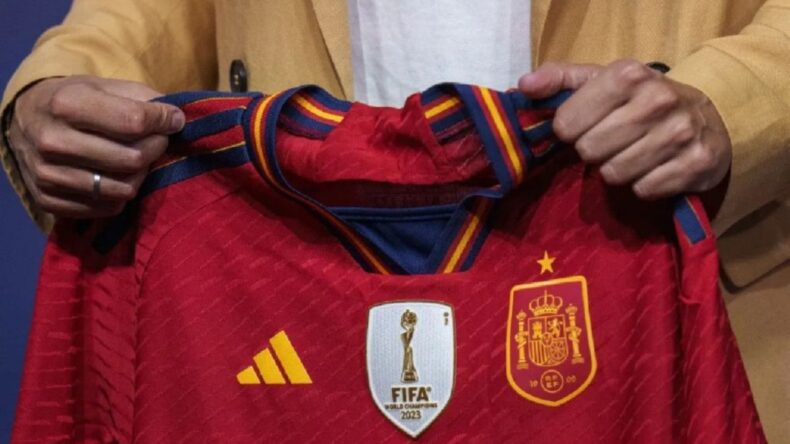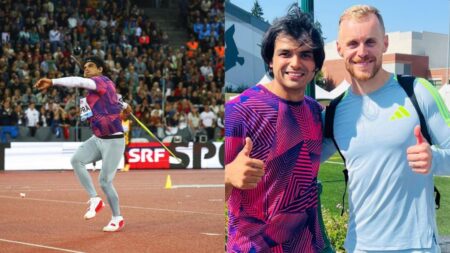Introduction
In a tumultuous turn of events, the Spanish national women’s soccer team finds itself at the epicenter of controversy and conflict. A significant portion of the World Cup-winning squad has chosen to strike, demanding substantial changes within the Spanish football federation. As President Victor Francos of Spain’s High Council for Sports (CSD) and new coach Montse Tome wrestle with the consequences, the battle lines have been drawn, with players, law, and passion all playing significant roles in this high-stakes drama.
The Call to Arms
The catalyst for this seismic shift was the call-up by Coach Montse Tome, which included 15 members of the victorious World Cup team. While this might seem like an occasion for celebration, it instead sparked a rebellion. The players, seemingly united in their cause, are demanding far-reaching reforms within the Spanish football federation. The resignation of the federation’s president, Luis Rubiales, after a scandal involving a player not selected by Tome, only fueled their determination to bring about change.
The Law and Its Consequences
President Victor Francos, while expressing his reluctance, has emphasized that the law must be upheld. Spain’s sports law, enacted in 2022, requires athletes to attend national team call-ups when summoned. Failure to do so is considered a severe infraction, which could lead to hefty fines ranging from 3,000 to 30,000 euros, as well as the potential suspension of their playing licenses for up to five years. The responsibility for deciding on these penalties rests with Spain’s top sports court, at the request of the CSD.
The Unwavering Players
Despite the looming threat of legal consequences, the players remain resolute in their quest for change. Their demands for reform go beyond the coaching staff changes and extend into the broader workings of the Spanish football federation. The players’ statement makes it clear that their strike is grounded in “justified reasons.” The dispute has drawn attention not only within Spain but also internationally, as these athletes bravely take a stand for what they believe is essential for the future of women’s soccer in their country.
The Coach’s Controversial Choices
Coach Montse Tome’s selection decisions have not escaped scrutiny. The omission of midfielder Jenni Hermoso, a notable figure in the sport, raised eyebrows and led to questions about the reasons behind her exclusion. Tome cited a desire to “protect” Hermoso, a justification that Hermoso herself found perplexing and took to social media to voice her concerns. The situation escalated as the Spanish federation called up the World Cup champions against their will for upcoming matches, leading to accusations of “intimidation and threats” by the players.
The Road Ahead
With the Nations League matches looming, the Spanish women’s national team finds itself at a crossroads. The eventual finalists of the Nations League will secure a place in the 2024 Olympic Games, a prospect that adds further weight to the ongoing conflict. President Victor Francos has expressed his intention to engage in dialogue with the players and find a resolution. The players themselves, including the likes of two-time Ballon d’Or winner Alexia Putellas, remain steadfast in their determination not to be summoned without addressing their grievances.
A Shift in Location
The Spanish team’s training camp, initially scheduled for Madrid, has been relocated to Valencia in a strategic move to reduce media presence and maintain a semblance of normalcy amid the turmoil. However, it remains uncertain how many players will heed the call and attend the camp, given that a significant majority of the 23-woman squad stands united in their strike.
Conclusion
The Spanish national women’s soccer team is currently navigating uncharted waters, with the clash between players’ demands and the country’s sports law at the forefront. The battle for reform within the Spanish football federation, coupled with the players’ unwavering commitment to their cause, has turned this into a high-stakes standoff. As the clock ticks down to the Nations League matches and the prospect of Olympic qualification hangs in the balance, the world watches closely to see whether a resolution can be reached that satisfies both sides and ensures the future of women’s soccer in Spain.
In the midst of this intense dispute, it is crucial to recognize the broader implications of the players’ strike and the ensuing legal showdown. Their actions transcend the boundaries of sport and symbolize a broader movement for change and equality within women’s soccer, echoing the global call for gender parity in sports. The Spanish players are not merely seeking personal gain; they are pioneering a path that could inspire athletes worldwide to demand fair treatment, respect, and equitable opportunities, both on and off the field.
As this complex drama unfolds, one thing is certain: the future of women’s soccer in Spain hangs in the balance. The decisions made by both sides in the coming days will have far-reaching consequences, not only for the players and the Spanish football federation but for the sport as a whole. It is a pivotal moment, one that will test the resilience of the players, the resolve of the governing bodies, and the willingness of all parties to find common ground for the betterment of women’s soccer in Spain and beyond. Whether through dialogue, compromise, or legal action, the outcome of this battle will shape the trajectory of the beautiful game for years to come, and its impact will extend far beyond the pitch.













